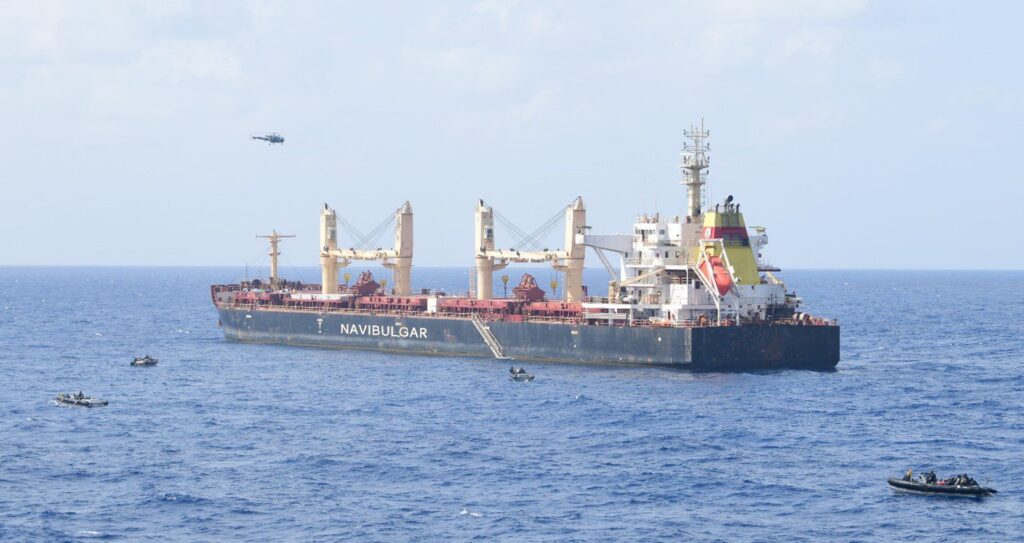search the site
Somali Piracy Resurges After Monsoon Lull

Mike Schuler
With the Indian Ocean monsoon season ending, Somali piracy activity is expected to rise.
After a four-year absence, Somali piracy has resurged dramatically in the past year, culminating in pirates obtaining a multimillion-dollar ransom payment earlier this year.
“After four years without a piracy event, Somali piracy re-emerged in November 2023 and is expected to persist,” warns maritime security firm Ambrey in their latest threat assessment.
The resurgence stems from political turmoil in Puntland, Somalia’s semi-autonomous region, where disenfranchised sub-clans initially targeted Iranian fishing vessels. These groups have since evolved their tactics, transforming captured dhows into “motherships” for launching sophisticated attacks on larger merchant vessels, according to Ambrey.
The threat has expanded dramatically, with pirates now capable of launching attacks up to 800 nautical miles from Somalia’s coastline.
Since November 2023, the European Union’s Operation ATALANTA has documented 43 piracy-related incidents in the Somali Basin and Gulf of Aden, including four merchant vessel boardings. Two of these vessels were hijacked: the MV Ruen, which was captured in mid-December 2023 and held for three months until being rescued by the Indian Navy, and the MV Abdullah, which was hijacked in March and freed a month later following a ransom payment of $4 million, according to Ambrey.
On Thursday, Operation ATALANTA reported it was monitoring a Chinese fishing vessel allegedly hijacked off Somalia’s northeastern Puntland coast. The vessel, which remains within Somali territorial waters, has been confirmed to be under the control of armed pirates carrying AK-47s and machine guns, with 18 crew members reportedly unharmed. As of now, the incident is being classified as an armed robbery at sea.
The situation in the region has been exacerbated by the maritime industry’s reduced security measures. Following the removal of the Indian Ocean High Risk Area designation in January 2023, many vessels have scaled back their protective measures.
Notably, Ambrey reports that none of the four merchant vessels boarded in the past year employed Private Armed Security Teams (PAST).
“Due to the size of the Indian Ocean, merchant vessels cannot solely rely on military intervention,” Ambrey’s threat assessement states, highlighting that naval assets may be hours away from distressed vessels.
However, there’s evidence that established security measures remain effective. Vessels equipped with private security have successfully deterred pirate approaches, with one notable incident in May 2024 resulting in the capture of six suspected pirates, now awaiting trial in the Seychelles.
As the post-monsoon season brings calmer seas, the maritime industry should brace for increased pirate activity. The industry is urged to reassess its security protocols, with recommendations including comprehensive ship security assessments, voyage-specific risk evaluations, and the strategic deployment of armed security teams.
source : gcaptain


















